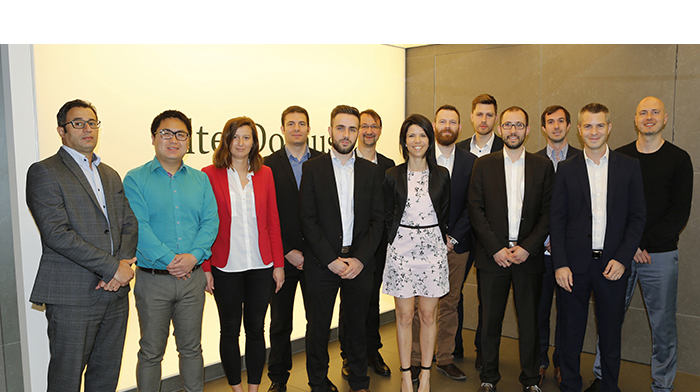TRANSFORMATION & ORGANISATION
How to make projects manageable
How often do IT projects fail to provide a return on investment? Poor communication and misunderstood goals, rather than dud technology, is mostly to blame.
May 18, 2017


How often do IT projects fail to provide a return on investment? Poor communication and misunderstood goals, rather than dud technology, is mostly to blame. Firms in Luxembourg are increasingly looking to “Agile” development methods to bring projects to a human scale. – By Stephen Evans
“It is a natural human tendency to underestimate how complex projects can become,” explained Jonathan Veiler, Head of Development at the fund and corporate services firm Alter Domus. “Traditionally, business managers might come to the IT department asking for new tools along with requests for a clear budget and delivery schedule, but this approach presents many challenges,” explained Gilles Lauwers, a Development Manager with the firm.
Yet too often this approach results in a lack of clear, deep, unified understanding of goals and how to achieve them. Not only that, business needs often have to respond to changing markets and client requests, but many project management systems aren’t designed to cope.
Agile for evolution
“Agile software development is a technique that encourages teams to break projects down into smaller, more manageable tasks that underlie an evolutionary approach,” Mr Veiler explained. “Cross-functional teams with participants from IT and the business work together to achieve relatively quick, partial progress as we move towards a long-term goal,” he explained. Most often deadlines of a couple of weeks are set for work that might be the foundation for future progress, or a tool that could be tested and implemented quickly.
In this way all team members can see progress being made. Moreover, they understand from first principles the structures being created. With this in mind, the cross-functional teams are better able to steer the project towards its ultimate goal, including taking changes of direction into account. This bottom-up, evolutionary approach also embeds interdisciplinary teamwork into the development process, helping to provide extra motivation and accountability. If it is seen that progress is not as expected, every team member will be better equipped to help get things back on track.
Change that goes with the grain
Agile has become something of a buzzword in business over the last ten years, but the challenge is to gain deep understanding of what it means and use it to change working methods across the business. The Alter Domus’ Development team decided they needed specific training. They called on Devoteam Luxembourg to deliver two in-house sessions to train and certify 16 IT and business staff.
“This training not only delivers the mechanics of the concept, but it also helps change mind-sets, a key requirement for an Agile approach to be delivered,” said Mr Lauwers. Practical training helped the teams put these ideas into practice. They worked together to create relatively complex structures using toy building bricks, with their planning guided by newly-acquired Agile techniques.
Changing mentalities
Alter Domus is using a subset of Agile called “Scrum”. This is a process framework that guides the teams as they seek to adhere to Agile principles. Most often used to manage complex software and product development, Scrum seeks to maximise productive time by minimising organisational overheads. Six months after their training began, the Development team is pleased with results so far.
Agile is no panacea. It requires buy-in from senior management who need to appreciate how short term goals are leading to progress towards the final product. They have to understand that flexibility regarding time scales and budgeting is part of process. Given repeated experience of unsatisfactory outcomes from top-down project management techniques, there is an appetite for a new, collaborative, evolutionary approach.
[colored_box color=”blue”] About Devoteam
 Devoteam S.A. P.S.F. | Training Center
Devoteam S.A. P.S.F. | Training Center
Rue des Trois Cantons, 7
L-8399 Windhof
+352 31 37 36 1
[/colored_box]